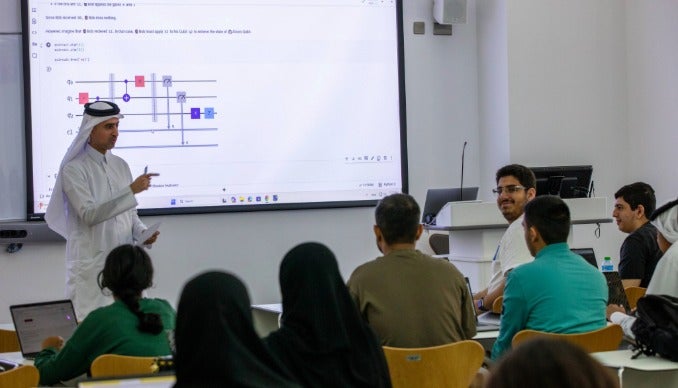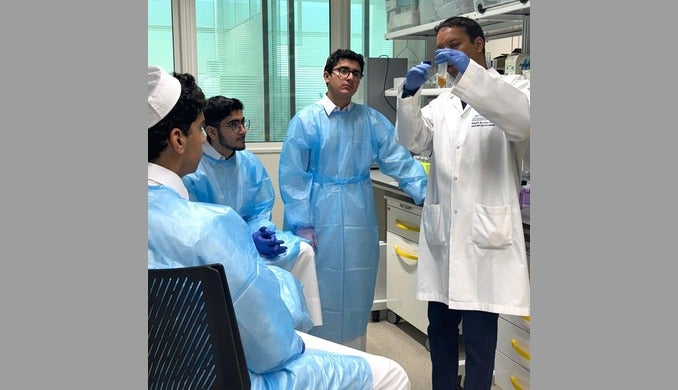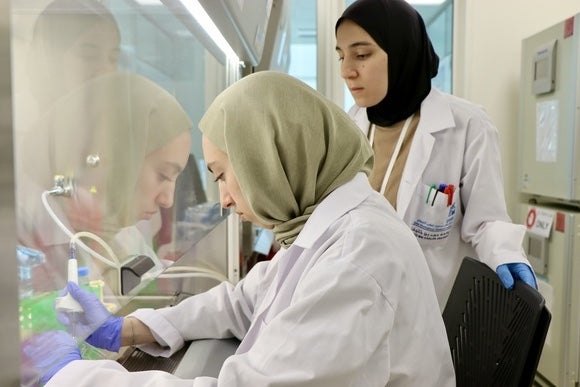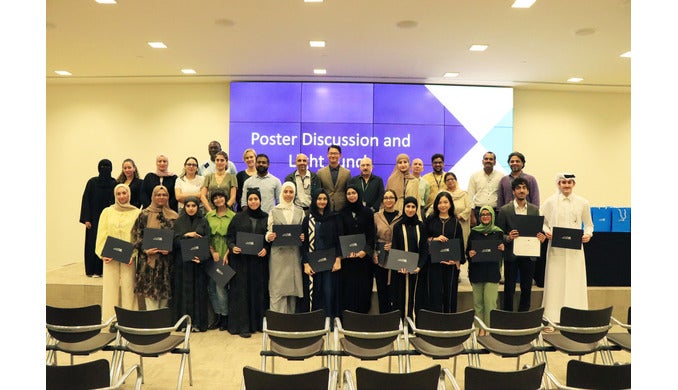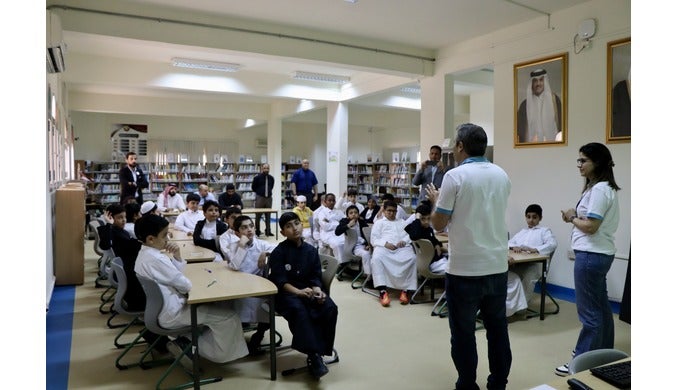QBRI’s diagnostic technology used in successful phase 1 of clinical trials
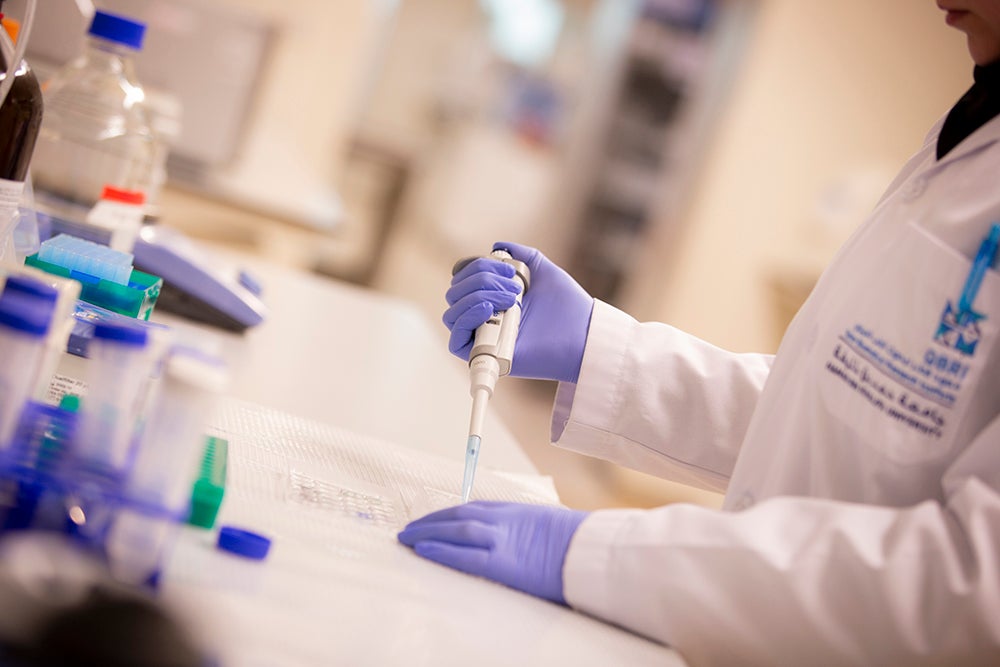
The long, painstaking battle to develop immunotherapy against Parkinson’s disease has received a positive boost with a team from Qatar Biomedical Research Institute (QBRI), part of Hamad Bin Khalifa University (HBKU), providing the novel diagnostic technology used in a series of promising clinical trials in Europe.
A trio of experts from QBRI – Executive Director Dr. Omar El-Agnaf alongside Research Associates Dr. Nour Majbour and Dr. Nishant Narayanan Vaikath – contributed their extensive knowledge in the field of neurodegenerative disease to assist work on evaluating biomarkers for Parkinson’s disease.
Austrian clinical-stage biopharmaceutical company, AFFiRiS AG, based in Vienna, Austria, subsequently utilized QBRI’s technology in their phase 1 clinical trials assessing the impact of Affitope (PD01A), an immunotherapy against the debilitating condition. The findings support the further development of this therapy through phase 2 clinical trials.
Dr. El Agnaf, said: “We are honored to be playing our part in the search to find an immunotherapy to treat and eventually end the debilitating problems of Parkinson’s disease. Millions of people around the world have to deal with this condition every day of their lives and finding an immunotherapy is so important.
“These results are very encouraging indeed, and we look forward to continuing our work with AFFiRiS in this crusade. Our dedicated researchers are once again demonstrating how QBRI is committed to paving the way for new breakthroughs in medicine, addressing the key healthcare challenges facing Qatar and the world.”
The data highlighting the tremendous potential of QBRI’s technology has since been published in the July issue of the esteemed journal The Lancet Neurology.
Dr. Lawrence W. Stanton, acting director of QBRI’s Neurological Disorders Research Center, said: “QBRI is committed to the discovery of novel biomarkers that can be used to develop specific and sensitive diagnostic, which can play critical roles in the development of therapies for treating neurological disorders, such as Parkinson’s disease. We are grateful for the opportunity to apply our technology in this promising clinical trials being conducted by Affiris.”
Parkinson’s disease is a progressive nervous system disorder that principally affects movement. The main symptoms are shaking (tremors), slow movements and stiffness. Treatments include therapies to help with movement problems, medicines and sometimes brain surgery. It is estimated that 1% of the world’s population aged above 60 – some 7-10 million people – are affected by the disease.
Günther Staffler, Chief Technology Officer, AFFiRiS AG, said: “Through this long-term collaboration, QBRI has been hugely supportive of our development of a disease-modifying immunotherapeutic for Parkinson’s disease. This is particularly important with respect to the development of biomarkers of a disease, which may substantially shorten the time-lines for development and licensure of these much-needed therapies for Parkinson’s disease”.
Efforts to find an immunotherapy solution have been underway for many years, but the positive results from the trial in the Austrian capital suggest that researchers are a step closer toward that goal. Phase 1 of the trial was supported by The Michael J. Fox Foundation for Parkinson’s Research. The Hollywood film star established the foundation in 2000, two years after he revealed he had been living with the condition since 1991. It has become the largest non-profit funder of Parkinson’s disease research in the world, investing more than $650 million in investigative work.
QBRI's dedicated Neurological Disorders Research Center focuses on investigating neurological disorders of increasing prevalence in Qatar and the region. These disorders are diverse and range from neurodevelopmental diseases such as autism spectrum disorder (ASD), intellectual disability (ID) and epilepsy, to neurodegenerative diseases such as Alzheimer’s disease (AD) and Parkinson’s disease (PD).
Related News






